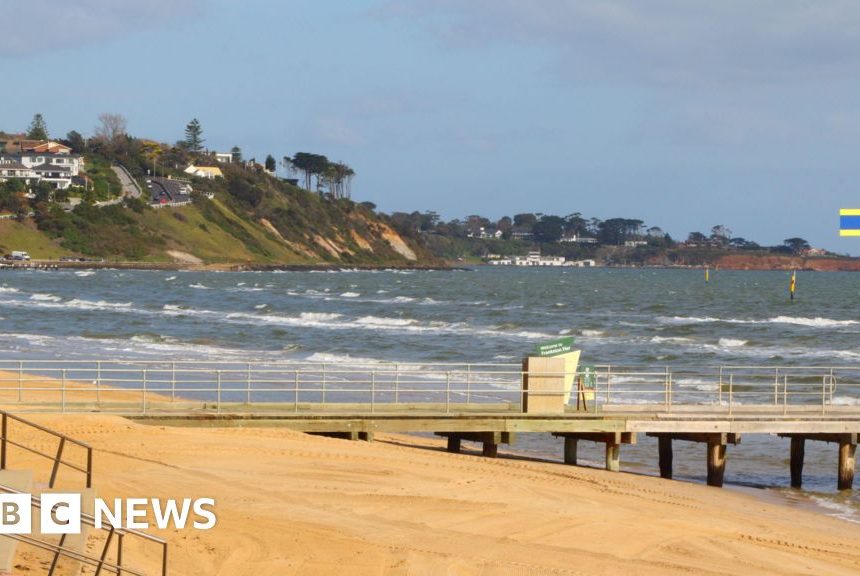Britain needs the Conservative party. That’s a line I never expected to write. For most of my life under their fiefdom, the “natural party of government” has commanded the media, business and political donations. It has presided, especially since the 1980s, over capital supremacy at the expense of labour, sky-high inequality, public service degradation and me-first individualism.
So it should be a joy to read its obituary everywhere, as it apparently faces “oblivion”, “the abyss” and “extinction”. The prospect of Britain without a Tory party is hard to grasp. But we may miss them if they are replaced with something worse. The next iteration of the right risks being the Trumpist, foreigner-persecuting world of Nigel Farage and Tommy Robinson. Kemi Badenoch’s opening conference speech walked her party further along that plank: mimicking his policies, she makes Faragism respectable, a small step for Danny Kruger defectors.
Polling at 16%, its membership has fallen below the soaring Greens, suggests Prof Tim Bale, expert on conservatism. Tory voters under 50 are rarer than red squirrels, less educated older voters their last domain, says Bale. Tories, in one form or another, have never placed less than second in a parliamentary election since the reign of William of Orange. No wonder their demise feels so astonishing.
They could still save their skin, but Badenoch chooses the annihilation path. She dives after Robert Jenrick, who apes Reform UK. No centre-right parties chasing after far-right populists have ever succeeded, warns Prof Robert Ford, a political scientist at Manchester University. None. They get devoured by those they mimic. Committing to leaving the European convention on human rights and abolishing the Climate Change Act, she actively repels lost Tory voters. “She swims against the tide of opinion,” warns Bale. Why? She is attempting to woo the traditional Tory media – the Sun, Telegraph, Mail, Express – as they shift towards Reform.
She ignores the more than a third of remainers who used to be Tories, horrified by her Brexit reprise in leaving the ECHR: it risks ripping up the EU trade deal and Good Friday agreement, deepening the defence and political rift with Europe. Same story on abolishing the Climate Change Act, with its net zero target, enacted by Theresa May, who is appalled at Badenoch’s “catastrophic mistake”. A majority of 2024 Tories worry about the climate. An alliance with Reform might save some Tory seats, but delivering a Reform-led government would finish off her party. Here’s a problem: if she increases the Tory vote with a few points reclaimed from Reform, that now helps Labour.
She ends any pretence of a broad church, more a one-pew confessional. An immigration “removals force”, modeled on Trump’s Immigration and Customs Enforcement agency (ICE), would seize 150,000 people a year, including those with decades of indefinite right to remain. Even supporters would be shocked to see people who have been legally residing for years in their neighbourhood or workplace – the corner-shop owner or GP nurse – dragged away by force.
What a curiosity to watch this self-destruction. What began with Brexit infiltrators, John Major’s “bastards” taking over the party, ends with its remnants becoming more extreme. Anyone (but them) can see the gaping vacancy in British politics where traditional conservatism used to be. That yawning space belongs to one-nationers – moderate, socially liberal, pro-business, pro-Europe, pro-competence, aiming at low taxes and a smaller state, but only where pragmatically possible. Where are they now? Outside active politics: the expelled Dominic Grieve stays out of the party, the expelled David Gauke has just rejoined, suspecting the computer accepted him unknowingly. Inside, the MP Karen Bradley is one who speaks openly to me of the need for that “grownup” party of old.
Michael Heseltine shows the Tories’ their moral duty to fight off Farage with a rallying roar in the Observer: “The rightwing equivalents to the fascists of the 1930s are back on the march.” And later, “to describe [asylum seekers] as thieves or rapists … encourages the worst sort of prejudice.” He excoriates leaving the ECHR and abandoning climate change laws. But he’s still a Tory, with “no faith” in Labour’s ability to rebuild the economy. “We must make clear that we will never have any part in the populist extremism of Nigel Farage.” Badenoch only attacks Reform’s incompetence, drawing no moral red lines.
Some one-nationers survive inside this regime, keeping their heads down. I talked to a few, who don’t want to be quoted: Badenoch banned all sectarian groups. The Tory Reform Group exists, just; One Nation hardly breathes. The group Next Gen Tories are the young ones tugging centre-wards, demanding an increase in housebuilding, championed by David Willetts, whose pioneering book The Pinch accuses the old of stealing the futures of the young. But bare-knuckle fighting was never in One Nation’s DNA: it should be now.
For a pin-prick of light, meet Cody Butler, a possible signpost. A 20-year-old student, he has just formed the One Nation Conservative Network. Not one of those camp young fogeys with a kitsch obsession with the Iron Lady, he’s well versed in Tory history, seeking a return to Macmillanism, marking Thatcher as the point when it all went wrong. He’s the right age to help shape a credible revival a decade ahead. What would it take?
No point in a new leader without a turn to Heseltinian conservatism to fight off Farage, and Tommy Robinson thuggery. Oppositions do influence governments: no sooner had Starmer raised spirits with his moral indignation for “the battle for the country’s soul” than his home secretary clamped down on migrants with leave to remain in a Badenoch-lite style. A better brand of conservatism would do the country good; the alternative is terrifying. But it may be too late and the party too far gone, about to be eaten alive by Farage.


